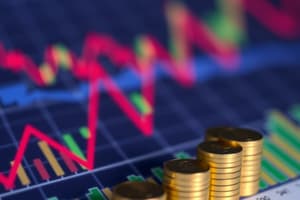Podcast
Questions and Answers
ما هو الغرض من микروإيكونوميكس في الاقتصاد الرأسمالي؟
ما هو الغرض من микروإيكونوميكس في الاقتصاد الرأسمالي؟
- تحقيق رضا المستهلك (correct)
- إدارة الأصول
- اسة سعر المنتج
- تаксим الرض905905
ما هو تأثير السعر الأقل على مالك الشقة؟
ما هو تأثير السعر الأقل على مالك الشقة؟
- جذب عدد أكبر من المستأجرين المحتملين
- زيادة دخل الإيجار
- تقليل تكلفة الإيجار
- خسارة دخل الإيجار (correct)
ما هو دور микروإيكونوميكس في الاقتصاد الكلي؟
ما هو دور микروإيكونوميكس في الاقتصاد الكلي؟
- دراسة الاقتصاد الكلي
- دراسة السوق المحلي
- تقييم أداء الاقتصاد
- دراسة سلوك المستهلكين والشركات (correct)
ما هو الهدف من اتخاذ القرارات الاقتصادية؟
ما هو الهدف من اتخاذ القرارات الاقتصادية؟
ما هو تأثير الطلب الأعلى على سعر المنتج؟
ما هو تأثير الطلب الأعلى على سعر المنتج؟
ما هو役 микروإيكونوميكس في حياة الناس اليومية؟
ما هو役 микروإيكونوميكس في حياة الناس اليومية؟
ما هو محور دراسة الميكروإقتصاد؟
ما هو محور دراسة الميكروإقتصاد؟
ما هو 원칙 التكلفة البديلة في الميكروإقتصاد؟
ما هو 원칙 التكلفة البديلة في الميكروإقتصاد؟
ما هو الغرض من_Maximizing utility_ في الميكروإقتصاد؟
ما هو الغرض من_Maximizing utility_ في الميكروإقتصاد؟
ما هو القانون الذي يحدد الأسعار في الميكروإقتصاد؟
ما هو القانون الذي يحدد الأسعار في الميكروإقتصاد؟
ما هي ميزة الميكروإقتصاد في اتخاذ القرارات؟
ما هي ميزة الميكروإقتصاد في اتخاذ القرارات؟
ما هو مبدأ التناقصي في الميكروإقتصاد؟
ما هو مبدأ التناقصي في الميكروإقتصاد؟
Flashcards are hidden until you start studying
Study Notes
Microeconomics in Economics Engineering
Microeconomics, one of the two main branches of economics, is the study of how individuals and businesses make choices regarding the best use of limited resources. This field is crucial for economists, particularly for those specializing in Economics Engineering (Mhendsie Aqtaed). Microeconomics principles can be applied to decision-making in everyday life, such as renting an apartment, and are essential for maximizing personal satisfaction or a business's profit.
Key Principles
Microeconomics uses a set of fundamental principles to make predictions about how individuals behave in certain situations:
- Maximizing utility: Individuals make decisions to maximize their satisfaction.
- Opportunity cost: When an individual makes a decision, they also calculate the cost of forgoing the next best alternative.
- Diminishing marginal utility: Describes the general consumer experience that the more one consumes of something, the lower the satisfaction they get from it.
- Supply and demand: Two other important economic principles that determine prices for a product or service.
Microeconomics in Decision-Making
In microeconomics, individuals and businesses make decisions based on utility maximization, taking into account the opportunity cost and the law of supply and demand. This interplay of principles helps determine the prices for a product or service, with higher demand and limited supply typically resulting in higher prices.
Renting an Apartment
Microeconomics can be applied to renting an apartment, which is a significant decision for both individuals and businesses. Consumers seek to maximize their satisfaction when they go out and shop for anything from paper towels to apartments, houses, and cars. Businesses set prices and make other decisions based on microeconomics, with the prices they charge depending on the supply of a specific good, such as an apartment, as well as how much others are willing to pay for it.
For example, if a landlord sets a rent that is lower than what other landlords are charging, they will attract a larger pool of prospective renters. However, they will also be missing out on some rental income, which will not maximize their utility. Both the landlord and the renter will make decisions to get the best outcome for themselves given the constraints they face.
The Role of Microeconomics in the Economy
In a capitalist economy, both consumers and businesses make thousands of big and small decisions each year guided by microeconomic issues. Consumers seek to maximize their satisfaction when they go out and shop for anything from paper towels to apartments, houses, and cars. Businesses set prices and make other decisions based on microeconomics.
The prices that consumers will pay depend on the supply of a specific good, such as an apartment, as well as how much others are willing to pay for it. This is where microeconomics and macroeconomics (the study of the larger aggregate economy) intersect, as they both play a crucial role in understanding economic behavior and shaping economic policies.
The Impact of Microeconomics on Everyday Life
Microeconomics principles can be applied to everyday life decisions, such as renting an apartment. Most people, after all, have a limited amount of time and money. They cannot buy or do everything they want, so they make calculated microeconomic decisions on how to use their limited resources to maximize personal satisfaction. Similarly, a business also has limited time and money. Businesses also make decisions that result in the best outcome for the business, which may be to maximize profit.
The field of microeconomics interests investors because individual consumer spending accounts for roughly 70% of the U.S. economy. Microeconomics and macroeconomics together make up the two main branches of economics, providing a comprehensive understanding of economic behavior and decision-making.
Studying That Suits You
Use AI to generate personalized quizzes and flashcards to suit your learning preferences.




